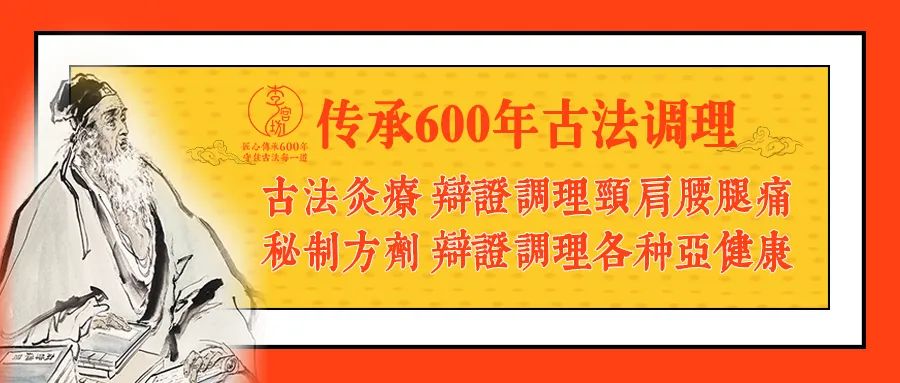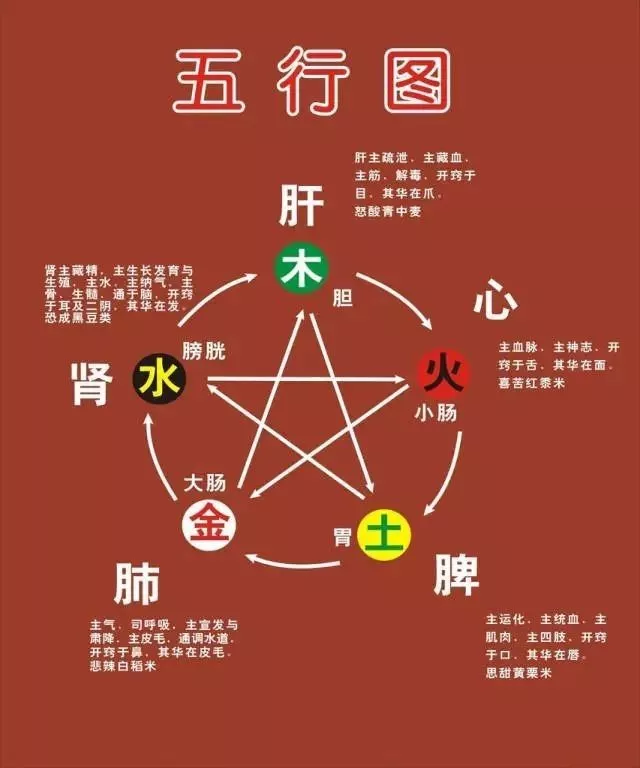
 We often say that sound expresses emotions, and emotions arise from the body. A skilled doctor can discern which organ is problematic just by listening to a person’s voice.
We often say that sound expresses emotions, and emotions arise from the body. A skilled doctor can discern which organ is problematic just by listening to a person’s voice.
1. The Five Organs Can Speak
 For example, the “Five Sounds”. If a person has liver qi deficiency, they may shout loudly, as “the sound of the liver is shouting”; shouting is a sign of release. If they are suppressed, like being reprimanded at work, they can only let out a soft sigh. In Japan, there are places specifically for people to vent, where they can throw spears at someone, break things, or curse. At that moment, they will definitely emit an “ah” sound or curse. These are all ways for individuals to release their emotions.The heart’s sound is laughter; if a person laughs excessively, it indicates that their heart spirit is scattered.The spleen’s healthy qi is expressed through singing loudly, while evil qi is expressed as “singing loudly while climbing high”, similar to individuals with mental symptoms. We often find that those with mental symptoms possess immense strength and skills; no matter how high the wall, they can suddenly climb up and act wildly. Generally, a normal person would need martial arts skills to suddenly leap onto a wall; otherwise, it is impossible. Those with mental symptoms can do this because of the excess of yang evil within their bodies.The lung’s sound is crying; if a person is always crying or their voice carries sadness, it indicates lung issues.The kidney’s sound is moaning; if a person is always groaning, their kidneys are definitely not well.
For example, the “Five Sounds”. If a person has liver qi deficiency, they may shout loudly, as “the sound of the liver is shouting”; shouting is a sign of release. If they are suppressed, like being reprimanded at work, they can only let out a soft sigh. In Japan, there are places specifically for people to vent, where they can throw spears at someone, break things, or curse. At that moment, they will definitely emit an “ah” sound or curse. These are all ways for individuals to release their emotions.The heart’s sound is laughter; if a person laughs excessively, it indicates that their heart spirit is scattered.The spleen’s healthy qi is expressed through singing loudly, while evil qi is expressed as “singing loudly while climbing high”, similar to individuals with mental symptoms. We often find that those with mental symptoms possess immense strength and skills; no matter how high the wall, they can suddenly climb up and act wildly. Generally, a normal person would need martial arts skills to suddenly leap onto a wall; otherwise, it is impossible. Those with mental symptoms can do this because of the excess of yang evil within their bodies.The lung’s sound is crying; if a person is always crying or their voice carries sadness, it indicates lung issues.The kidney’s sound is moaning; if a person is always groaning, their kidneys are definitely not well.
2. Clinical Judgment Standards
 If a good doctor listens to a patient speak, they can discern which organ is problematic, such as whether there is kidney deficiency or lung issues. In clinical practice, there are some interesting judgment standards:For instance, with lung cough, if a person coughs frequently, if it is a real condition, it is “loud and wheezing”; the cough is particularly loud. If the lung qi is particularly deficient, it is called “short of breath and unable to exhale”; the cough is very weak, and they can only cough softly. Some may think that those who cough loudly are more severely ill, but in fact, the opposite is true; a loud cough indicates that the person still has the strength to cough, while a weak cough indicates a worse condition.For example, with small intestine issues, the small intestine meridian runs from the cheeks to the nostrils. Therefore, if someone has a very magnetic voice and speaks beautifully, they may have small intestine problems. Some people with rhinitis may speak in a “muffled” manner, which sounds pleasant, but it actually indicates lung qi stagnation.People with spleen issues often “belch”; the sound is relatively low.People with stomach issues often yawn continuously. Yawning is also a sound that indicates weak stomach qi or cold stomach; through yawning, the stomach can relax.
If a good doctor listens to a patient speak, they can discern which organ is problematic, such as whether there is kidney deficiency or lung issues. In clinical practice, there are some interesting judgment standards:For instance, with lung cough, if a person coughs frequently, if it is a real condition, it is “loud and wheezing”; the cough is particularly loud. If the lung qi is particularly deficient, it is called “short of breath and unable to exhale”; the cough is very weak, and they can only cough softly. Some may think that those who cough loudly are more severely ill, but in fact, the opposite is true; a loud cough indicates that the person still has the strength to cough, while a weak cough indicates a worse condition.For example, with small intestine issues, the small intestine meridian runs from the cheeks to the nostrils. Therefore, if someone has a very magnetic voice and speaks beautifully, they may have small intestine problems. Some people with rhinitis may speak in a “muffled” manner, which sounds pleasant, but it actually indicates lung qi stagnation.People with spleen issues often “belch”; the sound is relatively low.People with stomach issues often yawn continuously. Yawning is also a sound that indicates weak stomach qi or cold stomach; through yawning, the stomach can relax. Kidney cough is even more severe, with blood in the sputum, resembling asthma, indicating that the kidneys are not holding qi.People with gallbladder issues often sigh. Why do they sigh? Because they cannot express themselves, they tend to sigh or exhale deeply. In real life, what should such people do? They can do more arm exercises to stretch the gallbladder meridian; the key is to adjust their sleep to allow gallbladder qi to rise on time.Gallbladder issues manifest as “belching”, which is a feeling of fullness in the chest, like a series of belches.All of the above are diagnoses through sound; by listening to a person’s voice and the emotions expressed while speaking, one can understand the most prominent organ’s pathology. This is a crucial part of TCM diagnosis by sound.In the “Biography of Bian Que”, after asking three questions, Bian Que told the official that he could cure the illness of Prince Guo. The official did not believe him, and Bian Que said, “By hearing the yang, I can discern the internal condition”; as long as one hears the external manifestations, they can know the internal conditions and thus cure the prince’s illness. Therefore, TCM is also very effective in diagnosis by sound.Some people now think that diagnosis by sound means smelling; however, smelling is not the main content of diagnosis. There are also those who smell, as previously mentioned, the “Five Odors”, which correspond to the five organs with five different smells. For example, a person with kidney disease may carry a rotten smell, like decaying matter. However, this is not a significant aspect of TCM diagnosis. The most important part of TCM diagnosis is listening to sounds.
Kidney cough is even more severe, with blood in the sputum, resembling asthma, indicating that the kidneys are not holding qi.People with gallbladder issues often sigh. Why do they sigh? Because they cannot express themselves, they tend to sigh or exhale deeply. In real life, what should such people do? They can do more arm exercises to stretch the gallbladder meridian; the key is to adjust their sleep to allow gallbladder qi to rise on time.Gallbladder issues manifest as “belching”, which is a feeling of fullness in the chest, like a series of belches.All of the above are diagnoses through sound; by listening to a person’s voice and the emotions expressed while speaking, one can understand the most prominent organ’s pathology. This is a crucial part of TCM diagnosis by sound.In the “Biography of Bian Que”, after asking three questions, Bian Que told the official that he could cure the illness of Prince Guo. The official did not believe him, and Bian Que said, “By hearing the yang, I can discern the internal condition”; as long as one hears the external manifestations, they can know the internal conditions and thus cure the prince’s illness. Therefore, TCM is also very effective in diagnosis by sound.Some people now think that diagnosis by sound means smelling; however, smelling is not the main content of diagnosis. There are also those who smell, as previously mentioned, the “Five Odors”, which correspond to the five organs with five different smells. For example, a person with kidney disease may carry a rotten smell, like decaying matter. However, this is not a significant aspect of TCM diagnosis. The most important part of TCM diagnosis is listening to sounds.
3. Listening to the Five Sounds and How to Nourish the Five Organs
 In TCM, diagnosis involves observation, listening, questioning, and pulse-taking, where listening includes not only smelling but also hearing sounds.The “Huangdi Neijing” states that the sounds of breathing, laughing, singing, crying, and moaning correspond to the liver, heart, spleen, lung, and kidney respectively. By carefully listening to these five sounds, one can gain insight into the condition of the five organs; these sounds can be seen as windows to organ health.
In TCM, diagnosis involves observation, listening, questioning, and pulse-taking, where listening includes not only smelling but also hearing sounds.The “Huangdi Neijing” states that the sounds of breathing, laughing, singing, crying, and moaning correspond to the liver, heart, spleen, lung, and kidney respectively. By carefully listening to these five sounds, one can gain insight into the condition of the five organs; these sounds can be seen as windows to organ health. 1Nourishing the LiverThe liver corresponds to anger and its sound is shouting. If a person frequently loses their temper and shouts, it may indicate liver issues, generally due to excessive liver fire. They can consume some cooling foods that help clear heat, such as chrysanthemum tea, shepherd’s purse, and loofah, which are beneficial for soothing the liver and detoxifying.People who habitually “sigh deeply” may have liver qi stagnation; Chai Hu (Bupleurum), mint, and perilla leaves can help soothe liver qi and prevent qi stagnation.The “Six Character Formula” mentions that frequently making the sound “shh” can have health benefits for excessive liver fire, liver deficiency, and eye diseases.Those who are about to get angry should repeat the “shh” sound several times to help regulate their emotions and maintain inner peace, preventing anger from harming the liver.
1Nourishing the LiverThe liver corresponds to anger and its sound is shouting. If a person frequently loses their temper and shouts, it may indicate liver issues, generally due to excessive liver fire. They can consume some cooling foods that help clear heat, such as chrysanthemum tea, shepherd’s purse, and loofah, which are beneficial for soothing the liver and detoxifying.People who habitually “sigh deeply” may have liver qi stagnation; Chai Hu (Bupleurum), mint, and perilla leaves can help soothe liver qi and prevent qi stagnation.The “Six Character Formula” mentions that frequently making the sound “shh” can have health benefits for excessive liver fire, liver deficiency, and eye diseases.Those who are about to get angry should repeat the “shh” sound several times to help regulate their emotions and maintain inner peace, preventing anger from harming the liver. 2Nourishing the HeartThe heart corresponds to joy and its sound is laughter. A person with sufficient heart qi will love to laugh, and their laughter sounds hearty. Moderate laughter can help smooth heart qi. If a person laughs excessively for no reason, it may indicate heart issues.At the same time, excessive laughter can deplete heart qi. If one laughs a lot or talks a lot, they may feel palpitations, indicating insufficient heart qi; thus, they need to pay attention to nourishing heart qi. The key to nourishing the heart is to learn to live slowly; if work is particularly stressful, one should deliberately slow down after work. In terms of dietary supplements, longan, lotus seeds, lily, and black fungus can nourish heart qi and yin.In the “Six Character Formula”, frequently making the sound “he” can replenish heart qi, which is beneficial for treating palpitations, insomnia, and forgetfulness. During emotional fluctuations or mood swings, consuming some dried hawthorn can help, as sour foods have astringent properties that can prevent heart qi from dispersing too much, protecting the heart and soothing the liver, thus calming the mood.
2Nourishing the HeartThe heart corresponds to joy and its sound is laughter. A person with sufficient heart qi will love to laugh, and their laughter sounds hearty. Moderate laughter can help smooth heart qi. If a person laughs excessively for no reason, it may indicate heart issues.At the same time, excessive laughter can deplete heart qi. If one laughs a lot or talks a lot, they may feel palpitations, indicating insufficient heart qi; thus, they need to pay attention to nourishing heart qi. The key to nourishing the heart is to learn to live slowly; if work is particularly stressful, one should deliberately slow down after work. In terms of dietary supplements, longan, lotus seeds, lily, and black fungus can nourish heart qi and yin.In the “Six Character Formula”, frequently making the sound “he” can replenish heart qi, which is beneficial for treating palpitations, insomnia, and forgetfulness. During emotional fluctuations or mood swings, consuming some dried hawthorn can help, as sour foods have astringent properties that can prevent heart qi from dispersing too much, protecting the heart and soothing the liver, thus calming the mood. 3Nourishing the SpleenThe spleen corresponds to thought and its sound is singing. Therefore, if a person sings loudly, their spleen should be relatively healthy. Conversely, if a person has spleen and stomach issues, their singing will be weak and lacking in strength. In daily life, irregular eating habits can disrupt spleen qi.The key period for nourishing the spleen is during late summer, combining methods to strengthen the spleen, dispel heat, and transform dampness. Foods such as mung beans, lotus seeds, loofah, dried tangerine peel, duck meat, and crucian carp can be consumed.In the “Six Character Formula”, frequently making the sound “hu” can cultivate spleen qi, which is beneficial for spleen deficiency, abdominal distension, spleen-stomach disharmony, and loss of appetite.
3Nourishing the SpleenThe spleen corresponds to thought and its sound is singing. Therefore, if a person sings loudly, their spleen should be relatively healthy. Conversely, if a person has spleen and stomach issues, their singing will be weak and lacking in strength. In daily life, irregular eating habits can disrupt spleen qi.The key period for nourishing the spleen is during late summer, combining methods to strengthen the spleen, dispel heat, and transform dampness. Foods such as mung beans, lotus seeds, loofah, dried tangerine peel, duck meat, and crucian carp can be consumed.In the “Six Character Formula”, frequently making the sound “hu” can cultivate spleen qi, which is beneficial for spleen deficiency, abdominal distension, spleen-stomach disharmony, and loss of appetite. 4Nourishing the LungThe lung corresponds to worry and its sound is crying. Similar to the spleen, if a person cries loudly, it indicates strong lung qi.Conversely, if a person is always crying softly, it may indicate lung qi deficiency, as seen with Lin Daiyu from “Dream of the Red Chamber”. Additionally, while crying can release emotions, one should not cry excessively; crying to the point of tears can harm lung qi, and crying excessively can also affect heart qi. The primary task of nourishing the lungs is to maintain a cheerful disposition, avoiding the sorrowful demeanor of Lin Daiyu.Moreover, chewing 1-2 walnut kernels and 2 slices of ginger every morning and evening can also nourish lung qi. In the “Six Character Formula”, frequently making the sound “si” canhelp treat symptoms such as wind-cold, fever, cough, and shortness of breath.
4Nourishing the LungThe lung corresponds to worry and its sound is crying. Similar to the spleen, if a person cries loudly, it indicates strong lung qi.Conversely, if a person is always crying softly, it may indicate lung qi deficiency, as seen with Lin Daiyu from “Dream of the Red Chamber”. Additionally, while crying can release emotions, one should not cry excessively; crying to the point of tears can harm lung qi, and crying excessively can also affect heart qi. The primary task of nourishing the lungs is to maintain a cheerful disposition, avoiding the sorrowful demeanor of Lin Daiyu.Moreover, chewing 1-2 walnut kernels and 2 slices of ginger every morning and evening can also nourish lung qi. In the “Six Character Formula”, frequently making the sound “si” canhelp treat symptoms such as wind-cold, fever, cough, and shortness of breath. 5Nourishing the Kidney
5Nourishing the Kidney
The kidney corresponds to fear and its sound is moaning. If a person is always groaning, it may indicate kidney issues, as the essence is stored in the kidneys, and overall health will not be good.
However, when a person is in extreme pain or joy, moaning is a manifestation of the body adjusting its essence. To nourish the kidneys, one should pay attention to the care of the lower back; prolonged sitting can harm the muscles, so office workers should frequently move, stretch, and massage their lower back to help nourish the kidneys. Foods that nourish the kidneys include lamb, leeks, longan, and yam.
In the “Six Character Formula”, frequently making the sound “chui” can alleviate symptoms such as weakness in the lower back and legs, night sweats, dizziness, and premature ejaculation.
The best doctors for health preservation are TCM practitioners.
The best regulation is through Chinese medicine.
The best Chinese medicine is herbal medicine.
The best herbal medicine is dietary therapy.
Promoting Traditional Chinese Medicine Culture
Sharing TCM Health Preservation Knowledge
Copyright Notice: We focus on sharing; the articles and images come from the internet and are not for commercial promotion. Copyright belongs to the original author. If there are any objections, please inform the editor, and we will delete it promptly.
Note: The various prescriptions, remedies, or therapies mentioned in this article are for reference and learning purposes only. Please do not use them blindly.
This platform does not bear any responsibility for any consequences arising from this!
▼▼▼
You can scan the following QR code
Leave a message in the background, and there will be a traditional method adjustment teacher to answer you.



